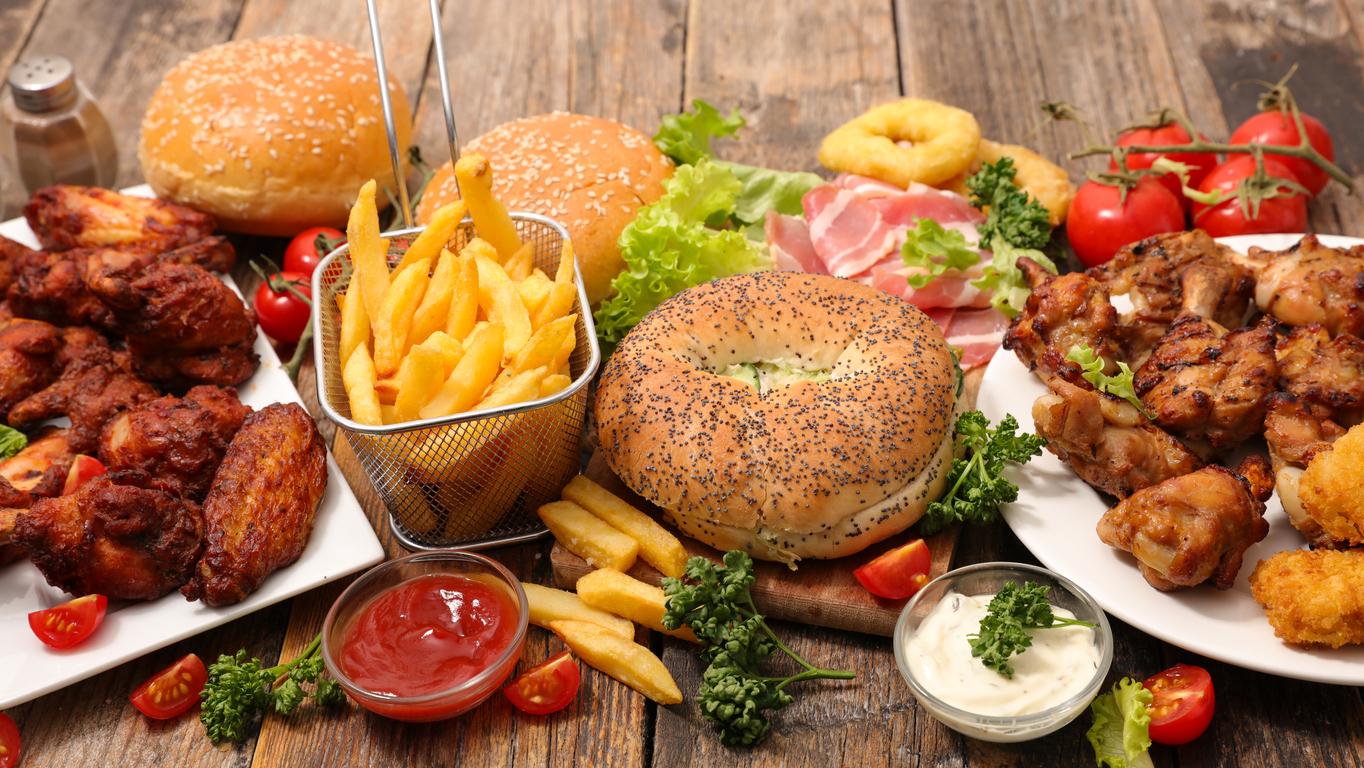Consumption of ultra-processed foods, full of fats and sugars, can lead to a real risk of addiction, according to a recent study.

- According to the study, behaviors around ultra-processed foods, high in refined carbohydrates and added fats, may meet diagnostic criteria for a substance use disorder in some people.
- In France, 69% of food products available in supermarkets are ultra-processed, according to a 2021 national study.
- In addition to leading to obesity, the consumption of ultra-processed foods promotes the appearance of pathologies such as type 2 diabetes, cardiovascular diseases and even hypertension.
“By recognizing that certain types of processed foods have the properties of addictive substances, we may be able to help improve global health”, explains Ashley Gearhardt, professor of psychology at the University of Michigan. She is part of a group of researchers from the United States, Brazil and Spain who recently published, in a special edition of British Medical Journalextensive study which sounds the alarm about the risk of dependence represented by the consumption of so-called processed foods.
Processed foods: a cocktail of carbohydrates and fats
“Most foods we consider natural or minimally processed provide energy in the form of carbohydrates or fats, but not both”, specifies researcher Alexandra DiFeliceantonio, co-author of the study. She gives the example of an apple, a salmon and a bar of chocolate. The apple has a carb-to-fat ratio of about 1 to 0, while the salmon has a ratio of 0 to 1. In contrast, the chocolate bar has a carb-to-fat ratio of 1 to 1 – a characteristic that appears to be increasing the addictive potential of a food. “Many ultra-processed foods contain very high levels of both. This combination has a different effect on the brain”adds the scientist.
14% of adults affected by addiction to processed foods
Behaviors around ultra-processed foods, high in refined carbohydrates and added fats, may meet diagnostic criteria for a substance use disorder in some people, scientists say. On the menu: less control over consumption, intense cravings, withdrawal symptoms and continued consumption despite consequences such as obesity, binge eating, poorer physical/mental health and lower quality of life.
By reviewing 281 studies on the subject carried out in 36 different countries, researchers discovered that addiction to ultra-processed foods affects 14% of adults and 12% of children. And geographical criteria play a key role: in certain countries, ultra-processed foods even constitute the major source of calories, in particular because of food deserts which limit access to minimally processed food. Unsurprisingly, people experiencing food insecurity rely more on ultra-processed foods and are therefore more likely to develop a food addiction to these types of foods.
“Given the prevalence of these foods – they account for 58% of calories consumed in the United States – there is so much we don’t know,” emphasizes DiFeliceantonio.
Ultra-processed foods: public policies to reduce their consumption
Researchers are calling for more scientific studies on ultra-processed foods. Viewing these foods as addictive could lead to new approaches to social justice, clinical care and public policy, they say.
For example, policies implemented in Chile and Mexico (taxes, labeling and marketing) are associated with reduced calorie intake and the purchase of foods high in sugar, saturated fat and salt. In the United Kingdom, a salt reduction program has notably been linked to a reduction in deaths from stroke and coronary heart disease.















